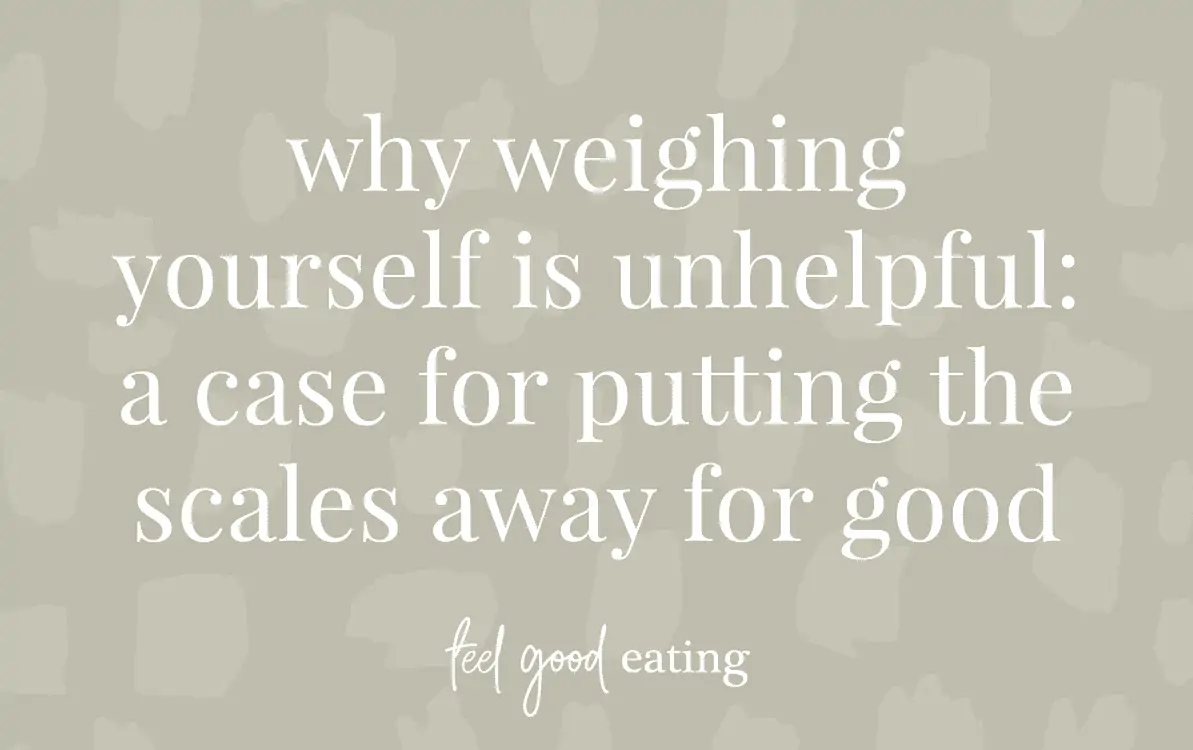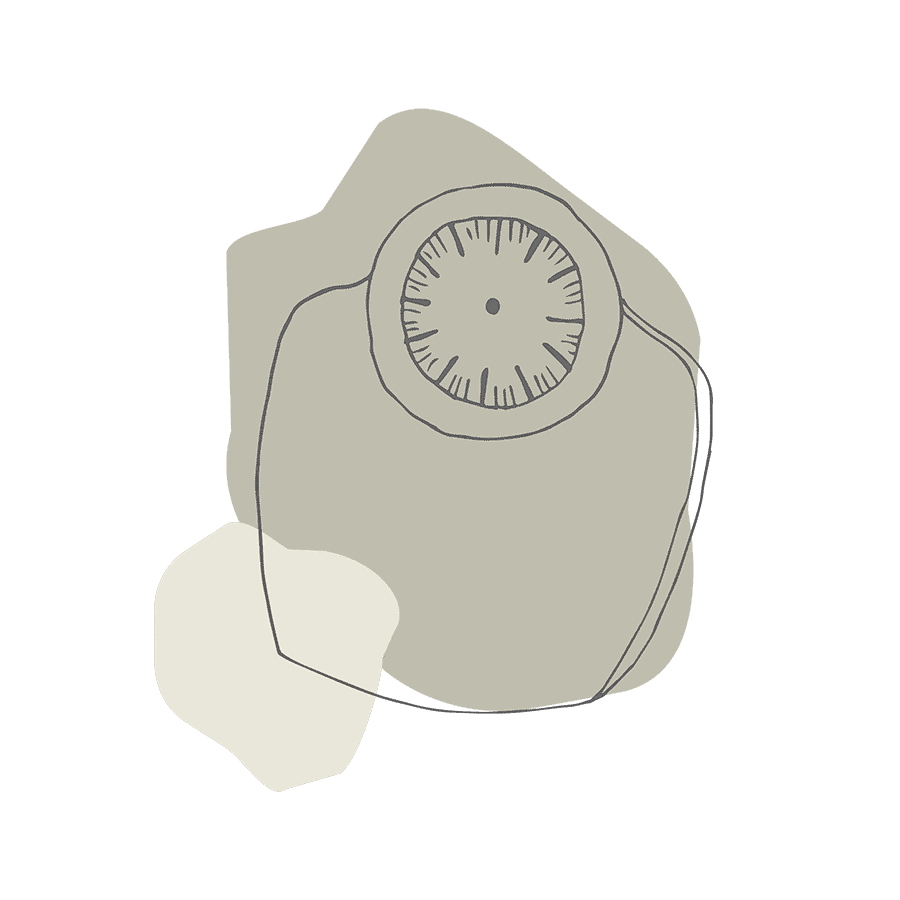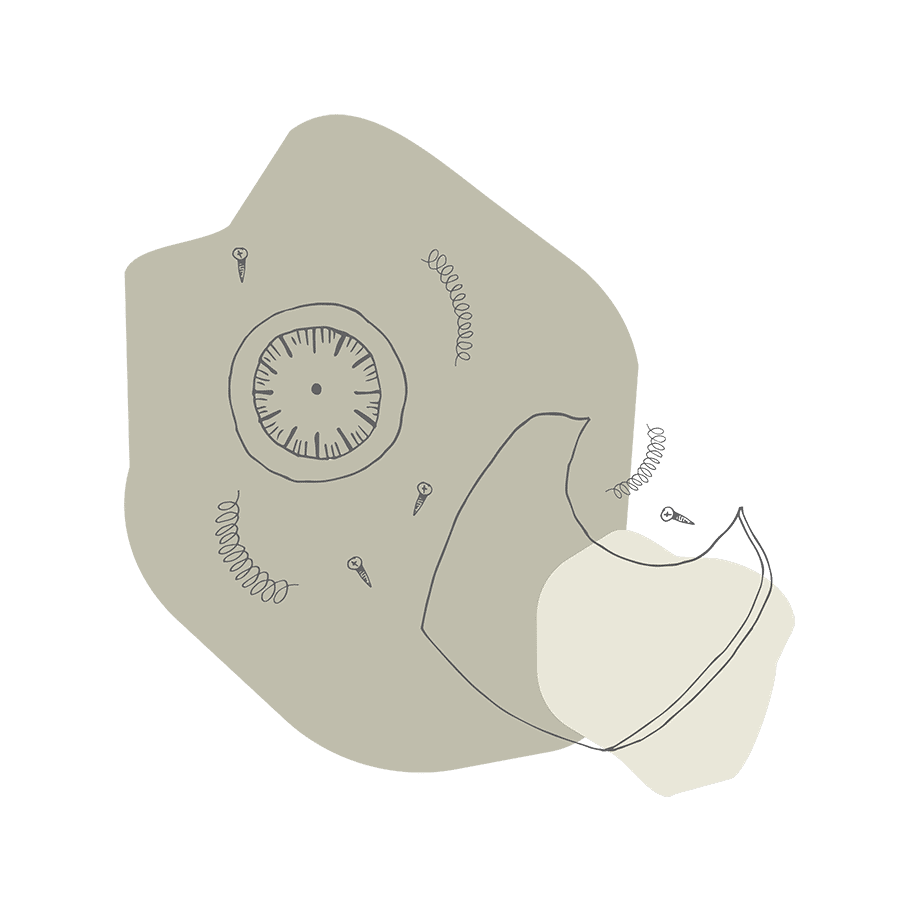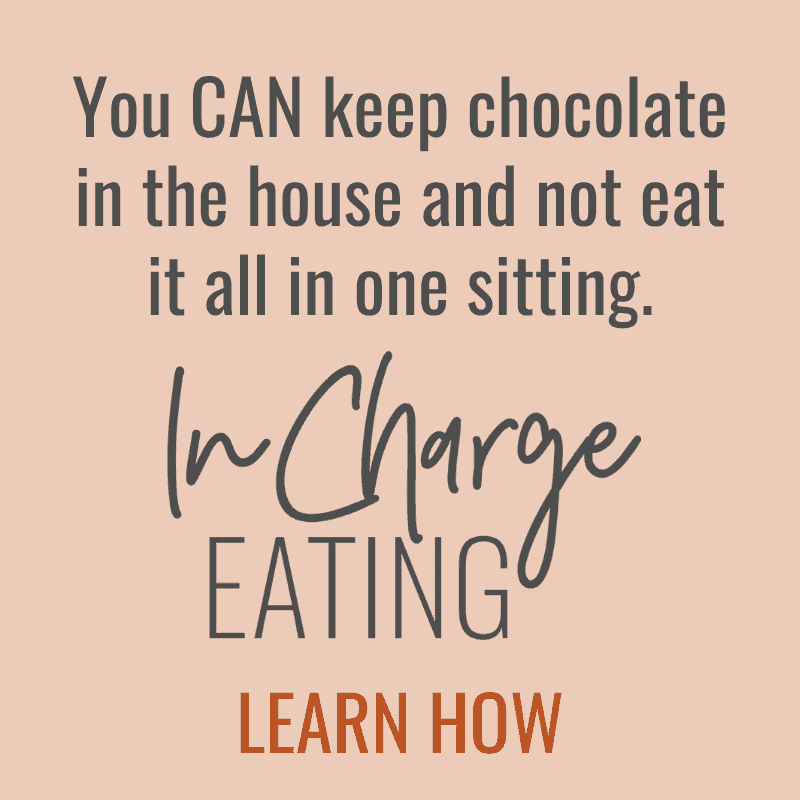Weighing yourself is one of the trappings of the diet mentality that can be hard to let go of when you have made the decision to stop dieting.
It is really normal to want to stop dieting and have a more peaceful relationship with food while at the same time still wanting to manage our weight. But in order to make inroads in healing your relationship with food and your body, it really does require putting weight loss on the back burner.
You might be saying to yourself, “So what? What’s the big deal with continuing to weigh myself?”
Put simply, because the numbers are unreliable.
But, let’s unpack why that is the case in a bit more detail.
weight versus mass
The main reason why the number on the scale is unreliable comes down to this idea of ‘weight’ versus ‘mass’ and is a concept that my colleague Shane Jeffrey shared with me.
Our body is a ‘mass’ that is made up of things like muscle, bone, fat, organs, hair, skin etc. It actually takes a lot for our body ‘mass’ to increase or decrease, i.e. to gain or lose muscle or fat or bone. For example, we are not born with an adult skeleton – our bones grow and increase slowly over time, and therefore so too does our ‘mass’.
What can change rapidly is ‘weight’. And this ‘weight’ is made up of all of the things that can fluctuate in our body on a daily basis.
where do these fluctuations come from?
food and drink
Everything we eat and drink has a weight. When we eat and drink, that weight of the food or beverage doesn’t magically disappear. The weight is now housed inside our body – which means that weight will show up on the scale.
waste
Weighing ourselves before we eat doesn’t negate the above point because after our food has been digested and metabolised, whatever is left over will be turned into waste (urine and stools), along with all of the other waste products our body makes over the day.
things that cause shifts in water/hydration
Salty meals or different phases of the menstrual cycle can cause water retention.
Exercise and sweat can cause water losses.
Alcohol is also something that can cause ‘weight’ to fluctuate. Not only from its physical ‘weight’ when consumed, but also because the body considers it a toxin and has to shift to a different pathway to metabolise it compared to how it metabolises food. So, while our body is prioritising metabolism of the alcohol, digestion of food and non-alcoholic drink slows down.
Basically, what you are seeing on the scale when you are weighing yourself every day is NOT likely a change in your ‘mass’ but a change in ‘weight’.
And this ‘weight’ can be vastly different at the start of the day and at the end of the day, from day to day and week to week. Pretty unhelpful right?
weighing yourself is never neutral
Diet culture has made it extremely difficult to hop on the scales and remain neutral and objective when we see the number.
The scale is essentially a trigger for determining mood and behaviour. And we give over too much power to that number, allowing it to make or break our day.
When the number is higher than it ‘should be’, it increases self-criticism and puts us in a bad mood.
We attach our self-worth to the number.
Over time, the repeated mood and behaviour fluctuations that go side-by-side with the scale fluctuations (due to all of the reasons mentioned above), leads to an increased preoccupation with food and weight, a more disordered relationship to food and body and our bodies being in a constant state of flux and uncertainty. Which is not where they prefer to operate from – they much prefer stability and consistency.
weighing yourself promotes disconnection
Regularly hopping on the scales is unhelpful because distracts us from connecting or remaining connected with our body’s internal cues.
It is really common that those fluctuations seen on the scale are what dictate food choices and eating, rather than listening to hunger, fullness, appetite and satisfaction.
When the number is higher than what it ‘should be’, it is common for restriction to occur to try and ‘correct’ weight.
Alternatively seeing the higher number can lead to ‘stuff it’ eating, where eating for the day is mostly made up of ALL the food that has previously been restricted and it feels chaotic and unpleasant. And all this serves to do is reinforce the (mis)belief that we have no control over our eating and therefore need to restrict harder.
how to stop weighing yourself
Honestly, my recommendation would be to go ‘cold turkey’, ‘rip the Band-Aid off’, ‘jump in the deep end’ and just stop.
Put your scales away, throw them out, smash them or give them to someone else to hide – whatever you need to do to never step on them again.
But I know that this might seem scary, so you could also consider:
- Weaning off: if you are obsessively weighing yourself multiple times a day, only do it once a day. If it’s daily, could you only do it a couple of time a week or weekly? Gradually make the gap between weigh-ins bigger and bigger until you are not doing it any more
- Set yourself a challenge to not step on the scales for 30 days
- Find something else to do at the time of day you would normally weigh yourself to disrupt the habit
There’s really no getting around it – allowing our mood, sense-of-self and eating to be dictated by a hunk of metal that is inherently flawed is in no way helpful.
If you want to cultivate a more peaceful relationship with food and your body, it is time to get rid of the scales.




 Hi! My name is Nina.
I’m a Certified Intuitive Eating Counsellor taking the ‘diet’ out of Dietitian. I am here to help you reject diet culture, tune into your body’s own inner wisdom about how to truly nourish yourself and ultimately feel good eating™
Hi! My name is Nina.
I’m a Certified Intuitive Eating Counsellor taking the ‘diet’ out of Dietitian. I am here to help you reject diet culture, tune into your body’s own inner wisdom about how to truly nourish yourself and ultimately feel good eating™ 


I’ve given diets the flick, and I feel like I’ve come really far. However I do still have a bit of an attachment to the scales. This article has been really helpful, especially the part about weight versus mass. Many thanks!
Thank you for taking the time to read the article and share your thoughts Vivian. It is so great to hear you have ditched the diets and been making good progress – so glad my article has been able to help you 🙂
The article is very important. Thanks for writing about this. I stopped weighing myself constantly over a year ago. I am trying intuitive eating. how can I lose weight without diets? I can’t Go on diets anymore, I’ve been on this since I was a teenager. I’m 36 years old! I have to get out of this.
You are welcome Ivete – I am glad you have found it helpful. It is great to hear you are trying intuitive eating – I will recommend a couple of other resources for you regarding your question about losing weight without diets that you might like to check out:
https://feelgoodeating.com.au/intuitive-eating-for-weight-loss/
https://feelgoodeating.com.au/stop-dieting